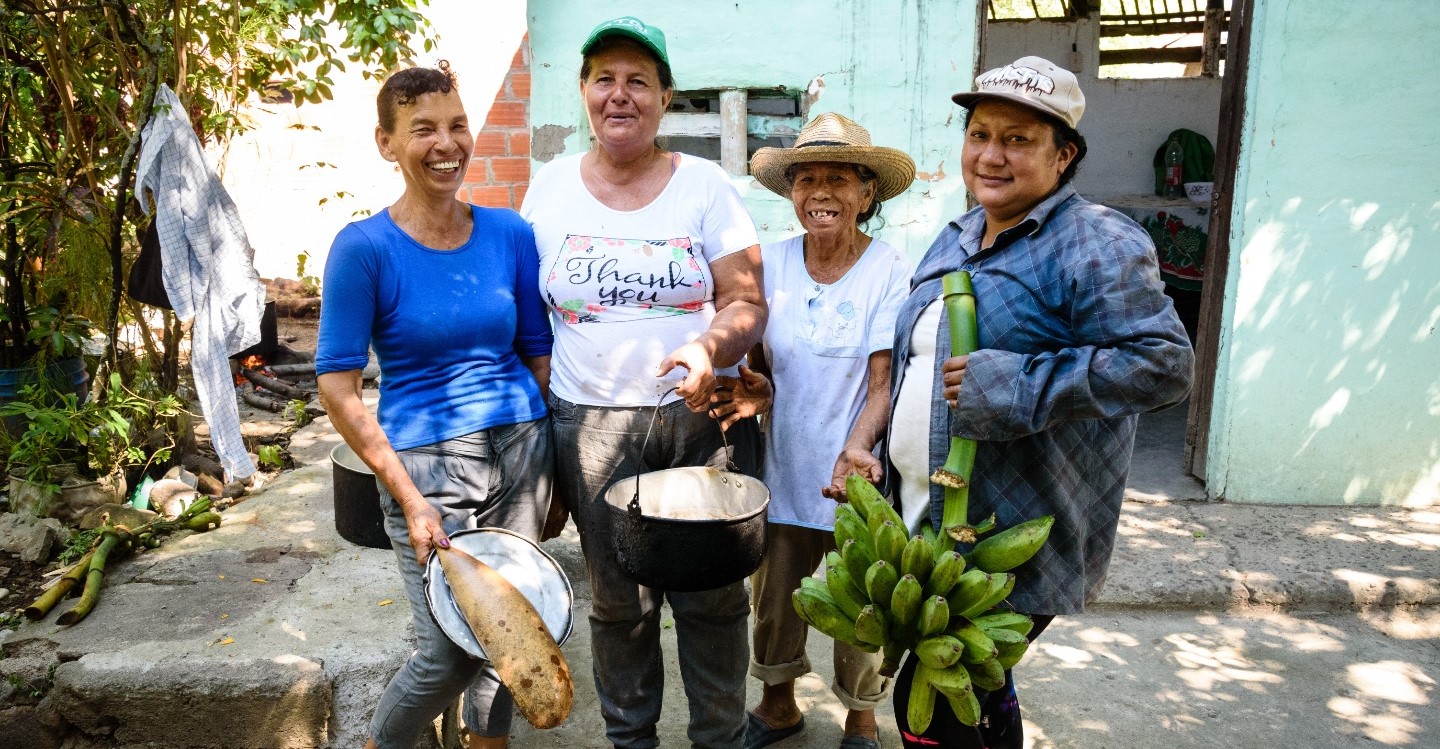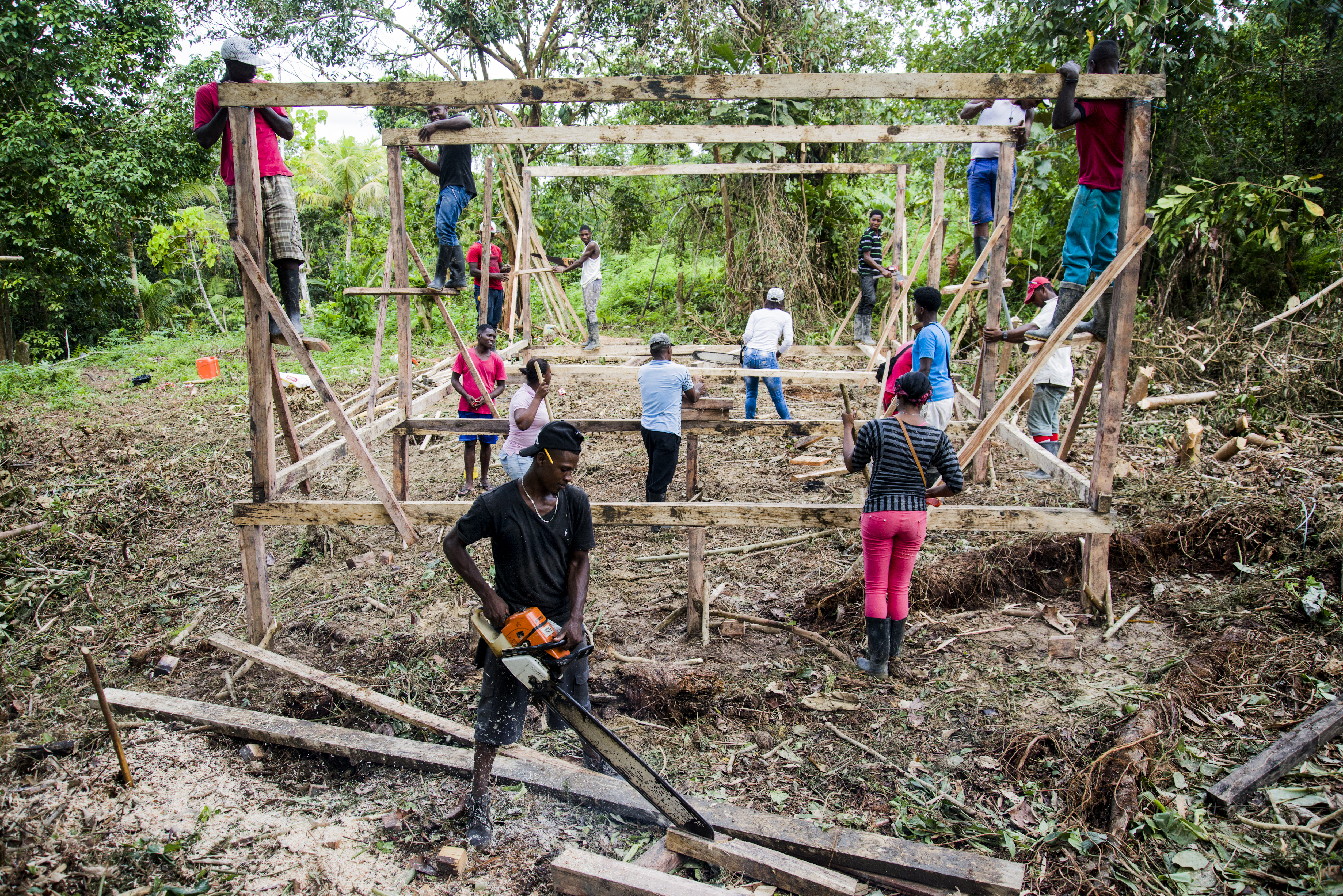How can International Financial Institutions invest to ‘’build back better’’?
IFAD Asset Request Portlet
Asset Publisher
How can International Financial Institutions invest to ‘’build back better’’?
By Saheed Adegbite, Christine Ciccone, Donal Brown

Even before the recent COVID-19 pandemic, the world was seeing a slowdown in extreme poverty reduction and increases in food insecurity. Last year there were up to 811 million food insecure people in the world. Climate change and extreme weather events have been important drivers of these trends, and they risk becoming ever more so. According to the World Bank, four of every five people living below the international poverty line live in rural areas.
Across the world the pandemic has had a devastating effect on economies, and pushed many millions of people back into extreme poverty and hunger. And given the already-high levels of poverty and vulnerability faced by small-scale rural producers, these issues have hit them and their families particularly hard. So, what should be the priorities for organisations, like IFAD, in the coming years?
Donal Brown, Associate Vice-President, Programme Management Department
IFIs will need to spend the next few years helping developing countries, and the people of those countries, to recover from these shocks. The challenge will be to use this as an opportunity to shift the development trajectory towards one that is more sustainable and more inclusive, while embracing new disruptive and transformative technologies that can really make a difference for the rural poor. For example, for IFAD, the pandemic has proved an opportunity for introducing and scaling up access to digital information platforms, whether for extension, market information or other information needs.
IFAD brings to the table its unique focus on helping poor rural people to increase their incomes and improve their food and nutrition security. Above all, we will need to help them strengthen their resilience to withstand shocks.
Typically, our approach is based on assisting households to adopt more productive agricultural practices, diversifying their production systems, and broadening their income base beyond farming. We are putting a huge emphasis on climate adaptation for smallholder producers – over the next three years 40 per cent of our investments will be for climate finance. In a unique initiative, we are working with FAO and WFP to support six countries in the Sahel region respond to the linked challenges of COVID-19, conflicts and climate change. We are starting to take a food systems approach to our programmes, looking to add value and create employment along agricultural value chains, from input supplies to food retailers. And the COVID-19-driven crisis has brought home to us how digital technologies – mobile phone-based information – can revolutionise the ways in which poor farmers receive and exercise information to improve their livelihoods and advance their resilience to shocks; and so we’re now working with a range of partners to expand the range of digital services and their outreach, and tailor them to the local needs of poor rural households.
Christine Ciccone, Special Advisor on the Food Systems Summit
How can we invest better for food systems transformation? We should do this through the lens of what can be done that will provide the most direct benefit to rural small-scale farmers and producers, and those who are most at risk of being left behind.
To transform, we must invest in solutions that offer the most opportunity for increased inclusivity. Women, youth, and Indigenous Peoples need to benefit directly from new activities and investments. If they are not included in solutions, the solutions will not be of the transformative nature we aspire. This is why IFAD is focusing on amplifying the voices and ideas of its key target groups throughout the Food Systems Summit.
There are two key areas where we have the opportunity to invest that could empower a diverse range of rural small-scale farmers equally, including those who have not always been direct beneficiaries.
The first area is finance. Access to finance is critical for individuals to grow their businesses. It is even more important for those who want to build in resilience to protect their businesses and increase their income over the long-term.
The second is technology. The benefits of technology, in particular digital, can instantly provide access to information critical for all stages of building and managing a business.
Imagine the possibilities if we combined the use of digital with access to finance. Now, imagine the possibilities if we were to share those combined tools with people who are most often left behind, and remain an untapped resource. This is especially true in the agriculture sector, where we know economic growth is two to three times more effective at reducing poverty and food security than growth through other sectors. Investing in new finance and technology solutions for the world’s poorest who work in rural areas has the potential to be absolutely transformative.

Saheed Adegbite, Director of the Office of Strategic Budgeting
IFIs have the challenge to assess how to rebuild by taking into account the social and economic changes caused by the pandemic. Organizations themselves should focus on efficiency of resource utilization, innovation and simplification of governance structures.
For resource utilization, it is necessary to rethink and rebalance both the distribution of operational administrative and direct programmatic costs as well as the apportionment across various expenditure categories, such as travel, staff and consulting services. For many organizations, this represents focusing on improving key efficiency indicators. The spread of new working conditions is a good opportunity to review administration costs, and mobilize more field staff and other resources to where they are most needed for the most impact.
On innovation, over the last few years IFAD has invested on technology that supports administration, finance, planning, human resources and other systems. So far they have been aimed at optimizing corporate effectiveness and efficiency to tackle administrative bureaucracy. The innovation most needed now is not to support better administrative management but direct action in the field. Innovative technologies that support the agriculture value chain and “innovation incubators” to develop new ideas that are scalable and sustainable.
Finally, this reconstruction phase also involves a critical review of the governance system and its simplification. COVID-19 has shown that even the most important decisions can be made remotely, thus saving money with a lower environmental impact. For the most part, there has not been a noticeable significant adverse impact in the engagement with donors, member states and partners. Where there have been more significant adverse impact has been the ability to reach those we serve the most, the marginalized millions in remote rural areas who are most impacted from the economic devastation from COVID-19. This should be the target for new investments. To reach the millions that remain in food insecurity.
Publication date: 27 July 2021

